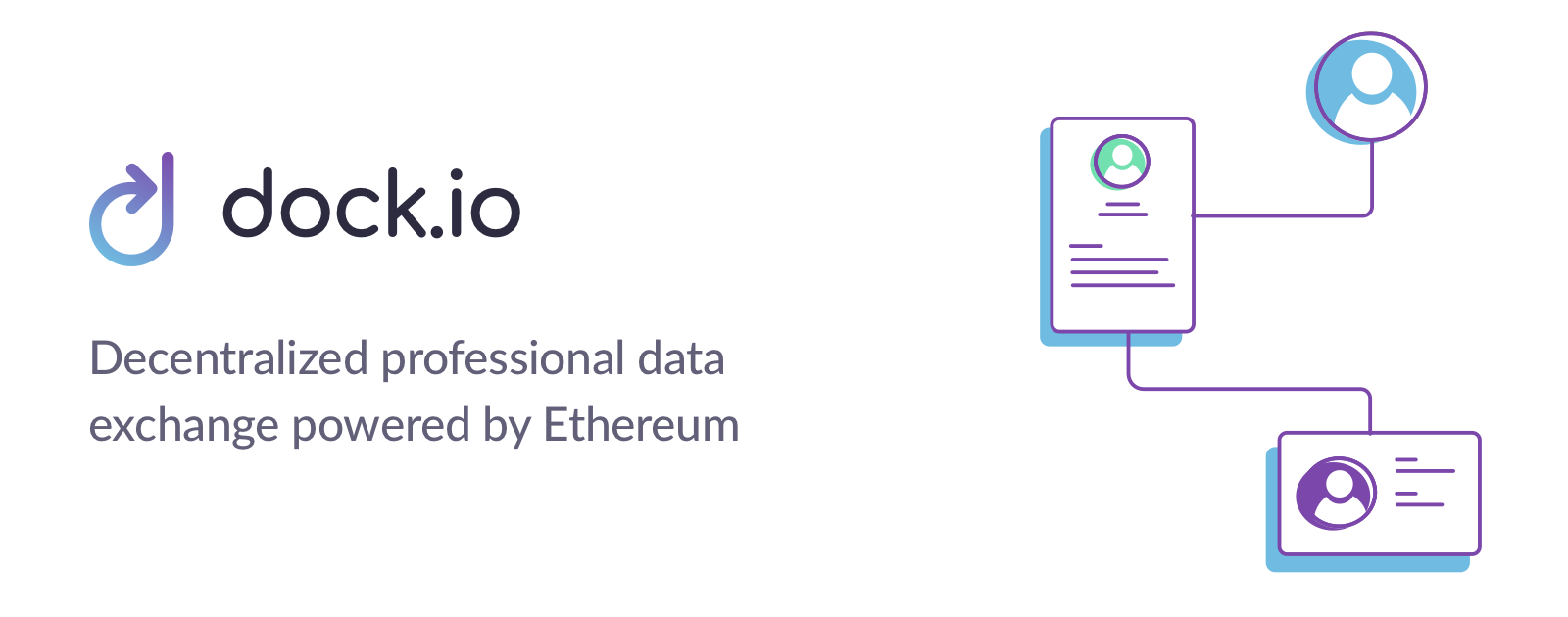
Date: 2025-04-05 Page is: DBtxt003.php txt00015086
Initiative
dock.io
Introducing dock.io : A Connected Professional World ... addressing the issue of personal data and its management
Burgess COMMENTARY
Peter Burgess
Introducing dock.io : A Connected Professional World

Technology in the professional industry has changed workforce dynamics by making it easier to find jobs, network with others, and have more control over one’s career. While there have been many positive developments, this has also enabled the emergence of centralized platforms that own and control user data.
LinkedIn, Upwork, Glassdoor and many other companies are directly incentivized to restrict users access to their own data as a mechanism for creating dependency among their user base and reducing the threat of competition. This isn’t a problem with one specific company, but a $200 billion industry-wide systematic issue.
Why is this a problem? Users spend years building value on platforms in the form of work experiences, connections, recommendations, reputations and histories. Despite being the creator and contributor of your professional data, these hard earned efforts are now confined to one platform, as it is not possible to transfer this data and value. This is due to platform restrictions in an effort to control user data. Your data should not be controlled or owned by any one entity.
As a result the industry provides fragmented experiences and the internet becomes less connected.
Example 1: a user spends years on LinkedIn accumulating connections, endorsements, recommendations and other history. This person would like to try a new platform, and because they are unable to transfer their data with them, they must start from zero, again. LinkedIn can decide to increase prices, restrict features, productize others, and make any changes they wish, while forcing you to comply.
Example 2: a freelancer spends years on Upwork completing projects successfully to receive positive reviews, which are essential for getting consistent work. As a result, this freelancer is confined to Upwork and forced to pay high project fees when policies change. If the freelancer wants to try to get work on a new platform, they start over and their income is negatively impacted.

Why is this your information not transferable? It’s in the best interest of these companies to control your data and make you dependent.
In previous years, LinkedIn provided a public API which allowed users to transfer their data to other applications. As a result 30,000 applications integrated, many large companies were born, and industry innovation flourished. In 2015, LinkedIn abruptly restricted API access and as a result many companies died and innovation slowed — the result of centralized power.
This was a small example of what a connected internet could be, but it was limited and barely scratched the surface of potential innovation.
Welcome to dock.io
dock.io is a decentralized data exchange protocol built on blockchain. We’re building an open and connected solution allowing users to truly own their data, and enabling applications to communicate and transfer data.

Blockchain technology provides a secure and trustless source. It removes dependencies on centralized sources as the user is the only true owner of their data.
dock.io is not a product or application, but a protocol capable of powering data for thousands of applications and technologies beyond what exist today.
dock.io enables seamless connectivity of data across the web, allowing a user to update their data in one application, and instantly push that update to any sources they wish.
The DOCK token creates a new industry paradigm as applications are now incentivized to allow users to share data vs centralizing and controlling it for corporate benefit. New products and technologies now have the ability to allow users to onboard complete professional histories in seconds, making it much more feasible to be successful, innovate, and provide better experiences to people around the world.
Our motivation
Centralized data controls the professional industry. It’s an industry our team understands exceptionally well. A quick background on myself and my cofounder, and our amazing team — we’ve built three platforms in this space amassing millions of users, and of millions in annual revenues. Together we founded Remote.com, the largest job network in the world for remote work, which is currently growing by more than 4,000 new registered users per day and used by some of the most well known brands in the world for recruiting and hiring talent. Prior to Remote, I founded branded.me, a professional network which grew to 3 million users, and my cofounder, Elina, founded Outsource.com, a freelance marketplace with over 600,000 users, and generated over $3 million in annual net revenue.
We have lived and breathed this industry and experienced these issues first hand for several years. We are passionate about the future of work, and believe there are much better ways of doing things than current industry standards. Our goal with dock.io is to continue to push boundaries and make a positive impact. As a part of our mission, Remote.com will be the first application to integrate dock.io, decentralizing users data by giving them complete control and ownership of their data.
We believe in an open and connected internet and will continue to do everything we can to push into the future. Anyone looking to get involved, please reach out.
Learn More:
(*) Join our Telegram community to be the first to be updated
(*) Join our Reddit community
(*) Follow us on Twitter
(*) Follow us on Medium
(*) Join the Newsletter
(*) BlockchainEthereum
One clap, two clap, three clap, forty?
By clapping more or less, you can signal to us which stories really stand out.
Go to the profile of Nick Macario
Nick Macario
Cofounder & CEO @ dock.io / Cofounder & CEO @ Remote.com
dock.io
dock.io
dock.io connects your profiles, reputations and networks into one sharable source using blockchain technology.